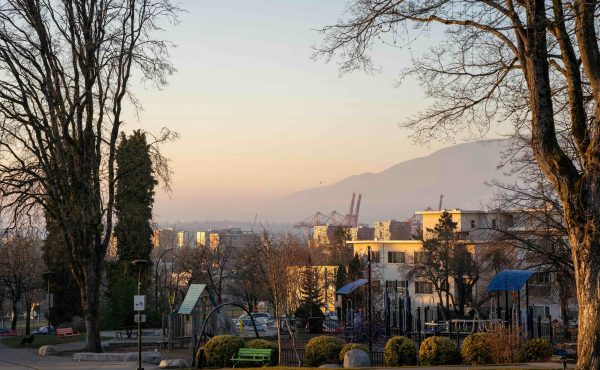

Guest Feature, European Cyclists’ Federation
[Editor’s Note: We are proud to announce that Spacing has partnered with our friends at the European Cyclists’ Federation to become is one of the media sponsors for their Velo-city Global 2012 conference, taking place in here in Vancouver on June 26-29. It’s the biggest cycling planning conference in the world, and is bringing together the best and the brightest in cycling and transport policy. Be sure to keep an eye out for some upcoming features that will be focusing on the interesting local work and initiatives that will be at the conference. You can find out more about the Velo-city here, and don’t be afraid to register…..it’s going to be a great event!]
At last year’s Velo-city Conference in Seville, Spain, we randomly gave one lucky participant a free ticket and accommodation to Velo-city Global in Vancouver. In about a month, University Student Alyson Fletcher from Ithaca, New York will be packing her bags to attend the world’s biggest cycling policy conference. We had a few questions to ask her…
Q: Tell us a little a bit about living in the New York area and the cycling situation there. What role do you think cycling should play in cities?
I live in Ithaca, New York which is a very hilly small city about two to four hours from any other major cities. The weather is gray about 9 months of the year, the winter is long and the average slope of the hill roads in Ithaca is about 12 percent. These aspects pose particular challenges for the beginner to average cyclist. Even I, as a rather advanced cyclist, do not choose to commute by biking because the walking and transit are both so much more convenient. (I do ride for recreation on the weekends in the beautiful rural farmland that surrounds our city.) With the flat areas of the city being easily walkable and the hilly areas being well-covered by transit, commuter cycling can be a hard sell in this town. That said, the traffic conditions for cycling are actually rather safe compared to most places. To boot, there has been some traction in local cycling advocacy in recent years to improve Ithaca’s bikeability. Last year my university hosted an Active Transportation Symposium inviting experts Mia Birk and Jennifer Dill to town to review a plan to develop a “neighborhood greenways” program to increase the bikeability of Ithaca for people of all ages.
As a rule of thumb, I think if our streets are safe for cycling, they’re safer for everyone.
As a bike zealot, I of course think every city should incorporate cycling. It is a key aspect of any place’s livability. I believe streets should be designed with the consideration of all users in mind such that we can more equitably share in the use of our one of our largest public assets. As a rule of thumb, I think if our streets are safe for cycling, they’re safer for everyone.
Q: How did you find Velo-city 2011 in Seville? What did you learn, what lessons did you take with you? Any unforgettable moments and/or great memories?
Velo-City 2011 in Seville was one of the best experiences of my life. I met so many great people, was inspired by those working on bettering cycling all over the world, and I even found a summer internship! I actually found out about Velo-City through doing a project with Gil Penalosa in Fall 2010 where I interviewed him to learn about his perspectives on how to do effectively advocate for more livable cities.
Velo-City 2011 in Seville was one of the best experiences of my life
So it was great for that to come full circle seeing him lead the conference as master of ceremonies. I definitely think the ride in the Spanish countryside the Saturday after the conference was one of my most unforgettable experiences at the conference. It was such a beautiful route with such breath-taking views. I also met four great folks from Austin, Texas and I have since visited all of them to learn about cycling in their city. I feel so lucky that I get to go to Velo-City 2012 and see them all again!

Q: What sort of conference content are you looking forward to Vancouver for Velo-city Global 2012? Any particular expectations from the conference?
I’m looking forward to learning about tactics for more effectively communicating the benefits of cycling to other users. In order to avoid preaching to the choir, I think we need to understand how others perceive cycling and how we can improve these relationships. I also expect to learn about new methods and technologies for collecting data on cycling. I would also love to hear about new ideas for quantifying the benefits of cycling, especially the economic and business cost-benefits.
Q; What are your thoughts on Velo-city leaving Europe and going to North America?
It will be great to see more familiar faces at Velo-City this time around as it will be more accessible to people I know and have worked with in North America. Vancouver also has such a great cycling network (almost comparable to some of the great European examples) so it will be a superior model for American advocates to follow. I visited there once a few years ago and was impressed at how easy it was to spend my entire day riding comfortably on dedicated bike facilities.

***
About the Interviewee
Alyson Fletcher is a graduate student in a Dual Masters Program in City Planning and Landscape Architecture at Cornell University. Her studies are focused in land use, urban design, and transportation. Her planning thesis project looks at the demographics and usage of the new protected bike lane network in Chicago, Illinois (research on which she will be presenting at Velo-City 2012). She has interned with the Active Transportation Alliance in Chicago, Illinois and before that, volunteered with the Livable Streets Alliance in Boston, Massachusetts. Before graduate school, Alyson worked in architecture and co-led a non-profit called Common Boston that did tours in under-represented neighborhoods of Boston. She also biked across the United States in 2010 to build, raise money, and advocate for affordable housing in America.
**


